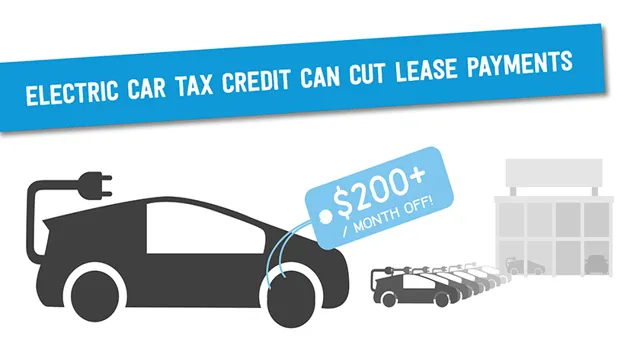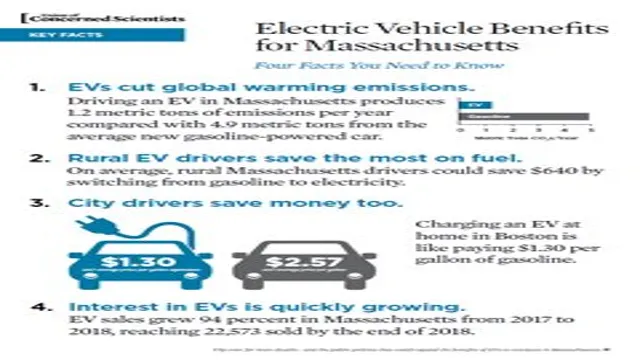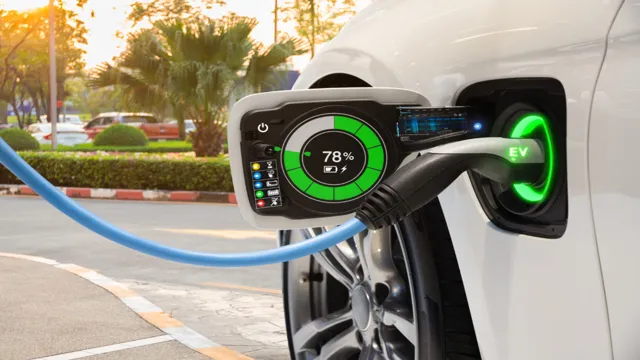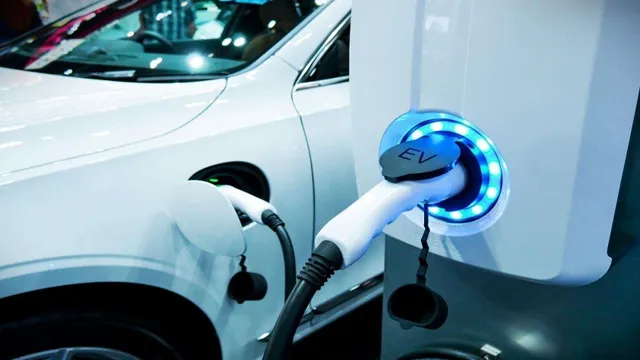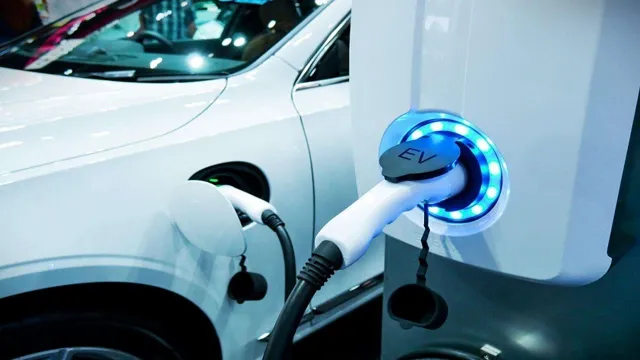Maximize Your Savings: The Ultimate Guide to Electric Car Income Tax Benefits
Electric cars have become increasingly popular in recent years with their sleek designs and refined technologies. Besides their positive impact on the environment, switching to an electric car can also have financial benefits. One of these benefits includes tax incentives in the form of rebates and credits.
In this blog, we will delve into the electric car tax benefits that drivers can now enjoy, evaluate the eligibility criteria for these benefits, and examine how you can take advantage of them. So, if you’re wondering how you can save money while being eco-friendly, keep reading!
Federal Income Tax Credit
If you’re considering buying an electric car, you may be eligible for the federal income tax credit. This credit can be a significant benefit for EV owners, allowing them to reduce their tax bill by thousands of dollars. The amount of the credit depends on the cost of the car, as well as its battery size.
For example, a car with a battery capacity of at least 16 kWh and a base price of $45,000 or less may be eligible for a credit of up to $7,500. However, it’s important to note that this credit is non-refundable, meaning that it can only reduce your tax liability to zero. If you don’t owe any taxes, you won’t receive the full credit.
Additionally, the credit begins to phase out once a manufacturer has sold a certain number of qualifying vehicles, so it’s worth checking to see if the car you’re interested in qualifies. Overall, the federal income tax credit can be a significant benefit for electric car owners and can help make the upfront cost of purchasing an EV more affordable.
Up to $7,500 for purchases made before 2021
If you’re planning on purchasing an electric vehicle, now is the time to do it! You may be eligible for up to $7,500 in federal income tax credits when you buy an EV before 202 This is an excellent opportunity to save money and reduce your carbon footprint at the same time. The amount of the tax credit varies depending on the vehicle’s battery size and how much energy it can store.
For example, a car with a 16 kWh battery can receive a credit of up to $4,000, while a car with a battery capacity of 30 kWh or more can receive the maximum credit of $7,500. Keep in mind that once a manufacturer has sold over 200,000 electric vehicles, the tax credit will begin to phase out. So, if you’re thinking of buying a Tesla or Chevrolet Bolt, act fast to take advantage of this credit while it’s still available.
Whether you’re in the market for a new car or would like to switch to an electric vehicle, this tax credit can make all the difference!
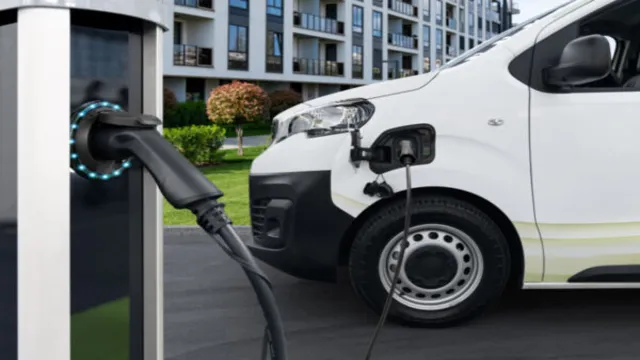
Phase-out based on manufacturer sales
One way to phase out the federal income tax credit for electric vehicles is based on manufacturer sales. As more electric vehicles are sold, the tax credit would decrease or eventually go away altogether for that manufacturer. This method encourages automakers to produce and sell more electric vehicles while also controlling the cost of the program.
It’s worth noting that each manufacturer has their own limit of eligible vehicles before the phase-out begins, so consumers should check the availability of the tax credit before making a purchase. This approach ensures that the tax credit is being utilized in a way that benefits the environment and incentivizes manufacturers to increase their electric vehicle offerings. So, if you’re in the market for a new electric car and want to take advantage of the tax credit, make sure to do your research and choose a manufacturer whose vehicles are still eligible.
State Tax Incentives
If you’re considering purchasing an electric car, you may qualify for an electric car income tax benefit. Many states offer tax incentives for individuals who purchase electric cars, ranging from income tax credits to exemptions from sales taxes. These incentives serve as a way to encourage more people to switch to electric vehicles, which emit fewer pollutants and greenhouse gases compared to traditional gas-powered cars.
Not only are you helping the environment by driving an electric car, but you may also be eligible for a tax break. It’s important to research the specific tax incentives offered in your state and see if you meet the eligibility criteria. Overall, the electric car income tax benefit can save you money while also helping to reduce your carbon footprint.
Varies by state
State Tax Incentives can vary greatly depending on the state you reside in. Some states may offer tax breaks for certain industries, while others may provide benefits for specific activities, such as energy conservation or research and development. It’s essential to research and understand the tax incentives available in your state to take advantage of them fully.
For example, some states may offer tax credits for hiring new employees or investing in capital improvements. Furthermore, tax incentives may change over time, so staying informed is crucial. It’s important to consult with a tax professional to ensure you’re taking full advantage of the tax incentive programs available in your state.
By doing so, you can reduce your tax burden and increase your bottom line.
California offers up to $2,000 rebate
If you’re a California resident, you might be eligible for a state tax incentive that can put up to $2,000 back in your pocket. California is one of many states that offer tax rebates for certain purchases or activities that promote a healthier environment. In this case, the state is offering rebates for anyone who purchases or leases a new electric vehicle.
The exact amount you’ll receive will depend on the make and model of the vehicle, as well as your income level. But the good news is that this incentive can be used in addition to federal tax credits, which can significantly reduce the overall cost of purchasing an electric vehicle. So not only will you be doing your part to reduce your carbon footprint, but you’ll also be saving money in the process.
Plus, with the rise of electric vehicles and charging stations, it’s becoming more convenient than ever to switch to a greener mode of transportation. Why not take advantage of this offer and see how much you can save?
Colorado offers up to $5,000 tax credit
Colorado is one state that offers a great incentive to its taxpayers – a tax credit of up to $5,000. This incentive is aimed at encouraging people to invest in renewable energy sources, such as solar power, wind power, geothermal, and more. The tax credit is available to homeowners, small businesses, and corporations that install and operate renewable energy systems in their properties.
It’s a fantastic way to reduce overall energy costs while also doing the planet a favor. The best part is that the tax credit is in addition to any federal incentives already in place, making it a very attractive proposition. If you’re a Colorado taxpayer, it’s worth looking into the available tax incentives that could help you save money while making a positive impact on the environment.
Businesses Can Benefit Too
If you’re a business owner, you may be interested to know that there are electric car income tax benefits available that can help you save money. The federal government offers a sizable credit to businesses that purchase or lease electric vehicles as part of their fleet. This means that you can potentially save thousands of dollars on your income taxes by switching to electric cars.
But it’s not just about the tax savings – electric cars are becoming increasingly popular among consumers, and having an electric vehicle fleet can help position your business as environmentally conscious and forward-thinking. Additionally, electric cars require less maintenance than traditional gas-powered vehicles, which can help lower your operating costs over time. If you’re considering making the switch to electric cars for your business, be sure to explore the available tax benefits and consider the long-term savings potential.
Qualify for tax credits and deductions
When thinking about tax credits and deductions, many people only think about the benefits for individuals. However, businesses can also benefit greatly from these incentives. There are a variety of tax credits available for businesses, including those related to research and development, hiring and training employees, and investing in certain industries or geographic areas.
Additionally, businesses can deduct expenses related to running their company, such as office rent and equipment. Taking advantage of these credits and deductions can have a significant impact on a business’s bottom line, helping them to save money and reinvest in their operations. So, if you own or manage a business, be sure to talk to a tax specialist to see which credits and deductions you may be eligible for.
By doing so, you can make the most of your tax situation and help your business thrive.
Write off expense of charging station installation
Installing a charging station for electric cars can be a worthwhile investment for businesses. Not just for the sake of being eco-friendly, but also because the expense of the installation can be written off as a business expense. This means that businesses can receive tax benefits while providing a valuable service to their customers.
It’s a win-win situation. Moreover, having charging stations on business premises can attract more customers who require electric charging facilities while they shop or run errands. It can make all the difference in the world for those prospective customers.
By prioritizing green initiatives and investing in a charging station, businesses can benefit both financially and in the public’s eyes. It shows the community that the business is conscientious and responsible, ultimately increasing customer loyalty and trust. It’s time to invest in the future of electric cars.
Plan Ahead for Maximum Benefit
Are you considering purchasing an electric car? If so, you could benefit from an electric car income tax benefit. These benefits vary depending on where you live, but in most cases, you can expect a tax credit of up to $7,500. This amount can be used toward the purchase price of your electric car or applied to your income taxes the following year.
However, it’s important to note that these benefits do come with some deadlines and limitations. For example, some states may have a cap on the number of electric car tax credits available, while others may require you to apply for the credit within a certain timeframe. To ensure that you receive the maximum benefit available to you, it’s important to do your research and plan ahead.
This will help you make the most out of your electric car ownership and enjoy the savings that come with it.
Research federal and state incentives before buying
Buying a car is an exciting experience, but it is important to plan ahead and do your research before making a purchase. This is especially true when it comes to electric cars since there are federal and state incentives available that can maximize your benefits and reduce the cost of ownership. To make the most out of these incentives, it is important to understand what they are and how they work.
For example, some states offer tax credits, rebates, or incentives for electric car owners, while the federal government offers a tax credit for buying a new electric car. However, these incentives may have specific requirements, such as the type of car you buy and how long you own it. To ensure you don’t miss out on any potential incentives, research options ahead of time to find which incentives are available in your area and how you can take advantage of them.
By planning ahead, you can maximize your benefits and experience all that electric cars have to offer while also saving money in the long run.
Take advantage of tax benefits while they are available
It’s easy to overlook the importance of planning ahead when it comes to taking advantage of tax benefits, but doing so can make all the difference. By doing a little research and looking into the available tax deductions and credits, you can potentially save thousands of dollars come tax season. One important factor to consider is the timing of your purchases or investments, as some tax incentives may expire or change from year to year.
For example, if you’re planning to purchase a new electric vehicle, it pays to do so before the end of the year, as there may be tax credits available that expire at the end of the tax year. By staying informed and being proactive about your taxes, you can ensure that you’re maximizing your tax benefits and keeping more money in your pocket.
Conclusion
In conclusion, the electric car income tax benefit is truly electrifying! Not only does it incentivize drivers to make a greener choice, but it also helps to reduce our carbon footprint and promote environmental sustainability. Plus, who doesn’t love getting a little extra money back in their pocket come tax season? So buckle up and get ready to ride into the future of transportation with this shocking tax benefit!”
FAQs
What is the electric car income tax benefit?
The electric car income tax benefit refers to the federal tax credit that applies to electric vehicles purchased after December 31, 2009. This credit ranges from $2,500 to $7,500 depending on the battery capacity of the vehicle and begins to phase out after the manufacturer hits a certain sales threshold.
Who is eligible for the electric car income tax benefit?
Any individual or business that purchases a new electric vehicle is eligible for the income tax benefit, provided they meet certain criteria. The vehicle must be purchased for use or lease and not for resale, and the credit may be subject to certain limitations depending on the individual’s tax situation.
How do I claim the electric car income tax benefit?
To claim the electric car income tax benefit, you will need to report the credit on your federal income tax return. You will need to fill out Form 8936, which is used to calculate and claim the credit. The credit can also be applied towards estimated quarterly tax payments.
When does the electric car income tax benefit expire?
While the electric car income tax benefit has been extended multiple times in the past, it currently remains uncertain. The current credit is set to phase out once a manufacturer reaches 200,000 qualifying vehicles sold in the United States. It should be noted that individual states may also offer additional tax incentives for buying electric vehicles.
